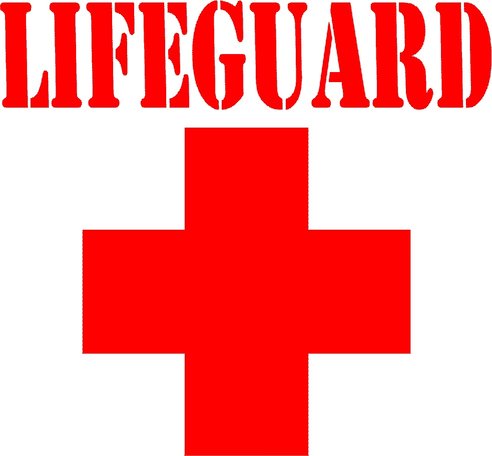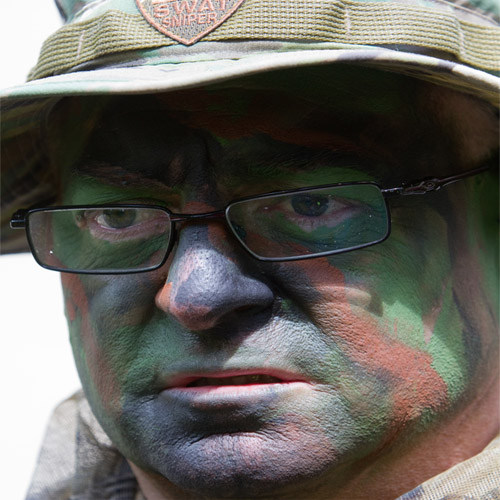
Mike
Sandusky, OH
Male, 20
I worked at an extremely busy water park for about two years straight and a summer camp as a beach lifeguard. Working at a water park operating 365 days a year as well as on a beach, I've seen my fair share of interesting scenarios. I've been the good guy with the band-aid, and the bad guy who yells at your kids (for good reason trust me). I'll do my best to answer any questions you have.
In my experience, the only people who would lifeguard as a career were the managers and supervisors in large water parks and the lifeguards who guard at ocean front beaches with dangerous waves. Everyone else was usually a teen or someone who needed a temporary job. In my opinion, the skill of the lifeguard would depend more on the maturity of the individual instead of their age. Some of the best guards I've ever worked with were 15 and 16 year old kids, while I've guarded with adults with maturity levels of 13 year old's who would be fired within a month of starting the job.
That depends on how fast you swim. Try having someone time you when you practice, but keep in mind that you'll be using oxygen more quickly when exerting yourself while swimming underwater. I can't really help with recommending breathing exercises. I played an instrument and that helped me with lung endurance. Also, I believe that most requirements are 10 feet of depth unless your certification specifies otherwise.
I would definitely say that lifeguards are on the bottom of the lifesaving food chain. Compared to the skills and knowledge of EMT's and other medical professionals, lifeguards do very little. As for the competition, there are really no others that do similar tasks to lifeguards. If anything, there is more dislike toward groups of employees in the resort by the lifeguards such as the cleaning staff. Lifeguards tend to do a lot of cleaning and can therefore have a dislike towards dedicated cleaning staff. Other than that, the lifeguards tend to compete between themselves.
Sure, it doesn't happen often, but it does happen. It's already fairly difficult to rescue someone in the first place, if a lifeguard is small statured and has to rescue a large victim, it can be extremely difficult. There are hand and whistle signals that lifeguards learn to signal other guards for assistance if in the water. Even experienced lifeguards might have to try multiple times to get a successful rescue if the person is in an extreme panic.
SWAT Team Commander (Retired)
 How much protection do those bomb disposal suits really provide?
How much protection do those bomb disposal suits really provide?
Professional Reseller
 What kind of mark-ups can you fetch on the clothing you resell from thrift stores?
What kind of mark-ups can you fetch on the clothing you resell from thrift stores?
Day Trader
 What can a good day trader earn in a year?
What can a good day trader earn in a year?
That depends on the level of certification you need. If you're trying to get deep water (more than six feet of water I believe) or open water certified, the tests could be very difficult for someone who isn't good at swimming. In order to be deep water certified with the American Red Cross, you need to be able to swim 300 yards continuously, tread water for 2 minutes using only your legs, and be able to complete a timed event (swim 20 yards, dive to a depth of 7 to 10 feet to recover a 10 pound object, swim 20 yards back to the starting point) in under 1 minute 40 seconds. Keep in mind that you'll have to be swimming for two or more people in the event you have to rescue someone. There are shallow water certifications however, that have less strict requirements yet still give you the chance to be a lifeguard.
If there are multiple unconscious victims and you're the only person that can help, I think you might have some bigger problems. I would suggest immediately contacting police and fire to get the people that are trained to handle that type of situation and proceed to do my best to help the victims according to my training and skill level. As for your second question, if you're trained in cpr but someone else is not, I would tell that person specifically to immediately call for help and start performing cpr how I was trained.
I'm not a doctor, emt, or other type of medical professional, so I'm not going to pretend that I am. Lifeguards are trained to handle basic rescue and first aid situations.
Not personally. As I mentioned in an earlier question, I became a lifeguard because I love being around water and because honestly, who wouldn't love wearing shorts and a t-shirt to work year round. I think there are probably bad eggs in all professions but lifeguards generally don't do their jobs because of some skewed sense of authority. I can however understand how it might seem that way because of the occasional shouting, whistles, and stern looks. I challenge you to try to enforce the same rules that people might not understand are for their safety hundreds of times a day and try to remain cheery when someone ignores you. I found myself getting angry occasionally because it seemed as if I was repeating the same things to the same person all day. In retrospect I understand that this thought was completely irrational, but when the thoughts of negligence lawsuits are pounded into your brain in training, lifeguards will tend to take any means necessary to keep swimmers safe. Including what may seem rude to a swimmer, but necessary to get the point across to a lifeguard.
-OR-
 Login with Facebook
Login with Facebook (max 20 characters - letters, numbers, and underscores only. Note that your username is private, and you have the option to choose an alias when asking questions or hosting a Q&A.)
(A valid e-mail address is required. Your e-mail will not be shared with anyone.)
(min 5 characters)
By checking this box, you acknowledge that you have read and agree to Jobstr.com’s Terms and Privacy Policy.
-OR-
 Register with Facebook
Register with Facebook(Don't worry: you'll be able to choose an alias when asking questions or hosting a Q&A.)